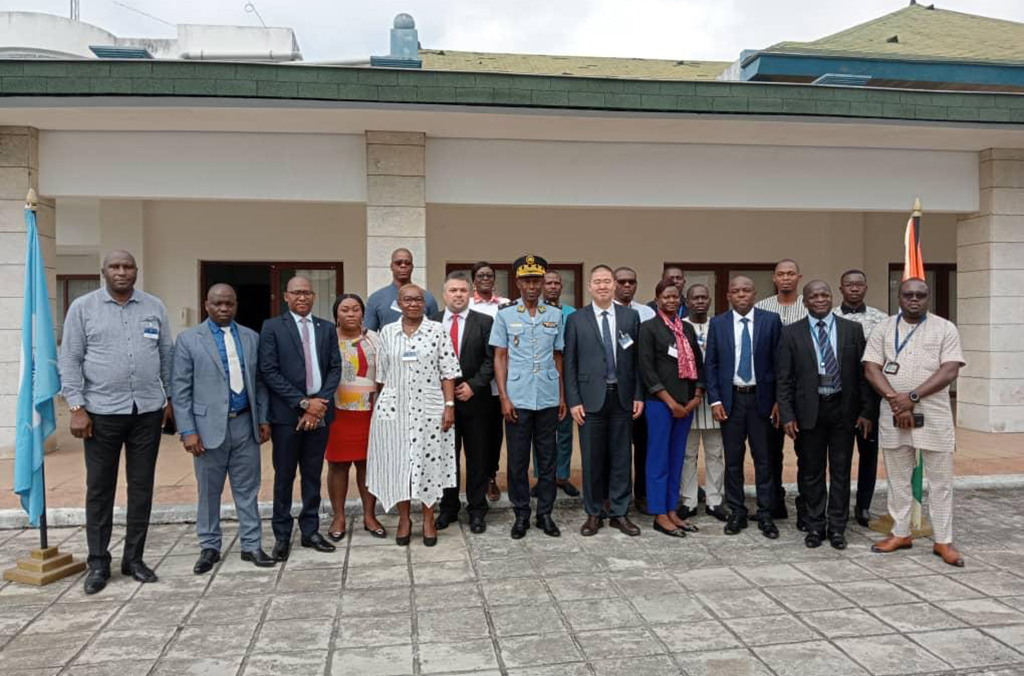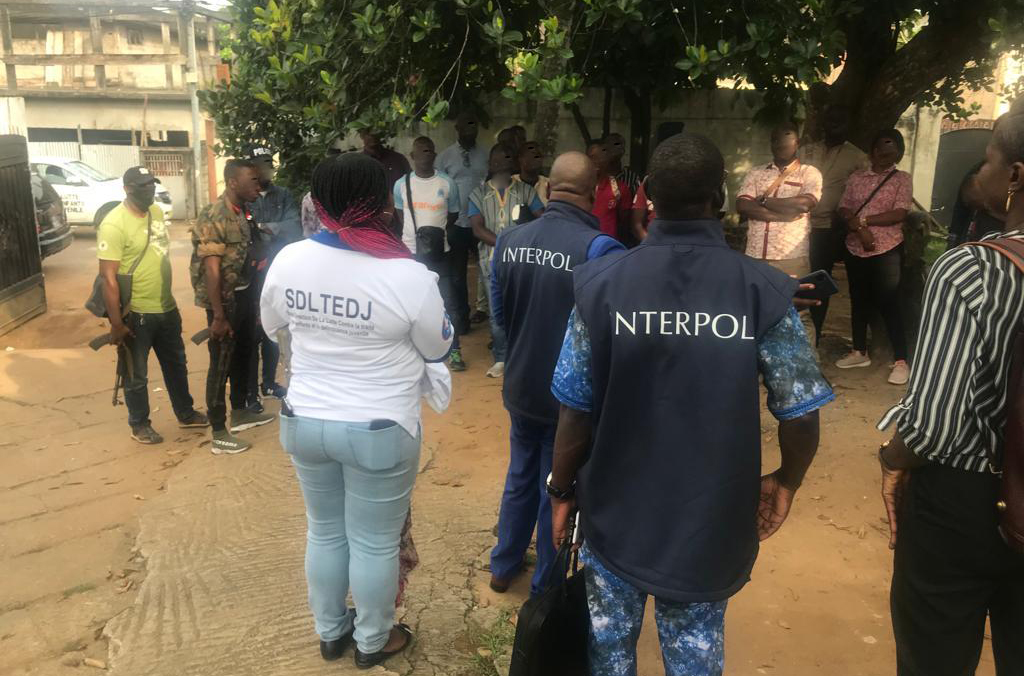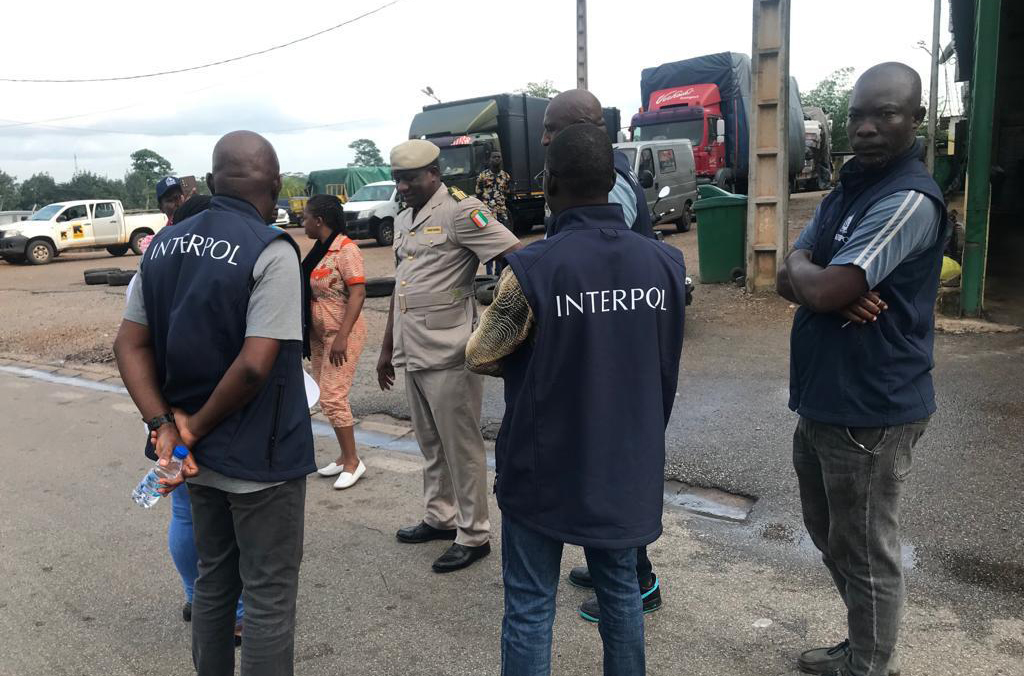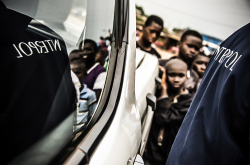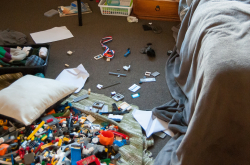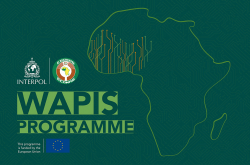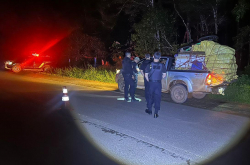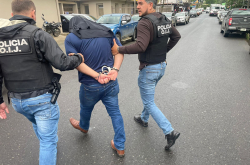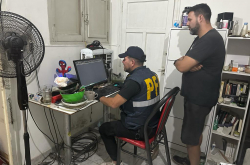ABIDJAN, Côte d’Ivoire – An INTERPOL-led operation targeting the criminal groups behind human trafficking and child exploitation across Benin, Burkina Faso, Côte d’Ivoire and Togo has seen 90 victims rescued and 15 suspected traffickers arrested.
Of those rescued during Operation Priscas (5-12 December), 56 were underage victims of sexual exploitation and forced labour in gold mines, open-air markets and domestic settings.
To ensure appropriate follow-up, social services and non-governmental organizations were identified and integrated into each country’s operational plan. Victims were then taken into care for post-operation interviews and support.
Operational highlights
In Côte d’Ivoire, authorities carried out several raids and vehicle checks on major routes. In a significant bust, one of those checks led to the identification of a group of 35 victims, including eight minors, who were accompanied by a known human trafficking suspect and his accomplice.
Long suspected of running a business-like sexual exploitation ring, the pair had been wanted at national level for two years. Hoping to blend among the victims, they were caught when officers cross-checked their identity documents against INTERPOL’s West African Police Information System (WAPIS).
In Burkina Faso, thanks to vehicle profiling, 10 minors were identified as they travelled to an illegal gold mine, where they had been promised work. The children, who did not have any identity documents on them, were taken into care and their ‘employer’ arrested. Investigations are ongoing.
In Benin, authorities concentrated their efforts on the Dantokpa market in Cotonou, the largest open-air market in West Africa, where four children were rescued from situations of forced labour.
In Togo, a Nigerian national was intercepted en route to Mali in the company of five women, including three minors. Her phone revealed that although they had officially been recruited to work in a hair salon, they were going to work in clubs for the purpose of sexual exploitation. The case has been referred to the Central Directorate of Judicial Police (DCPJ) for investigation.
INTERPOL’s capabilities and network
Throughout the eight days, authorities made full use of INTERPOL’s policing capabilities. An officer from the Command and Coordination Centre was deployed to the INTERPOL Regional Bureau for West Africa in Abidjan, where more than 202,000 instant checks against INTERPOL’s databases were carried out. Members of the INTERPOL Human Trafficking Expert Group (HTEG) were also on hand in Côte d'Ivoire to provide expert advice on sensitive and complex cases.
A number of INTERPOL Blue Notices, seeking information on additional suspects identified during the operation, will be published in the coming weeks to support ongoing investigations.
Jürgen Stock, INTERPOL’s Secretary General, said: “As countries and officers cooperate, making the most of our systems and global network, we see the net widening and more criminals identified. Victims of all ages are safeguarded after being removed from the exploitation cycle, and suspects are forced to face justice for the harm they have caused.
“This is the very essence of INTERPOL. We remain committed to coordinating such operations and following up on their results, because the work does not stop here,” concluded the Secretary General.
More than just a name
The operation was named after a little girl rescued from a cocoa field in 2015 during INTERPOL’s Operation Akoma. Today, she is thriving and, through Operation Priscas and other initiatives, INTERPOL’s Human Trafficking and Migrant Smuggling unit will continue connecting law enforcement and victim services to provide better futures for many more children.
Operation Priscas was carried out under the auspices of Project THB West Africa, with support and funding from the United States Bureau of International Narcotics and Law Enforcement Affairs (INL) and in partnership with the WAPIS Programme.





